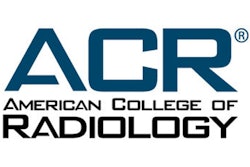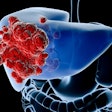
The presence of high levels of coronary calcium is considered one of the better predictors of cardiovascular disease. Lowering the radiation dose of CT scans performed to obtain calcium scores may increase the viability of the approach, Dr. Damiano Caruso from the Sapienza University of Rome told AuntMinnie.com.
This prospective study involved 51 patients with coronary plaques. A multidetector CT scan was performed on each of the patients using a standard dose and half the radiation dose. Iterative reconstruction at all strengths was then applied to the scans from the half-dose protocol.
The researchers found that iterative reconstruction at 40% strength on CT scans allowed the half-dose protocol to provide information that was just as accurate as with the standard-dose protocol. There were no significant differences in scores for coronary artery calcification or the number of calcium plaques identified between the two protocols.
"This would have a great impact on patient safety by reducing radiation dose by 50% while maintaining the same reliable results of a standard [coronary artery calcium score] protocol," Caruso said.
Lower-strength iterative reconstruction may have hindered calcium scores due to image noise, and higher-strength iterative reconstruction is known to add undesirable textural effects, according to the researchers.
This paper received a Roadie 2017 award for the most popular abstract by page views in this Road to RSNA section.



















